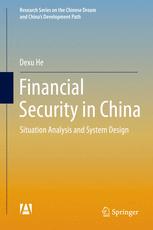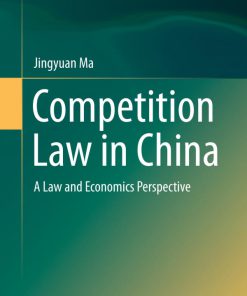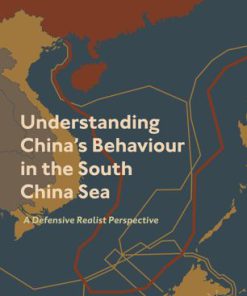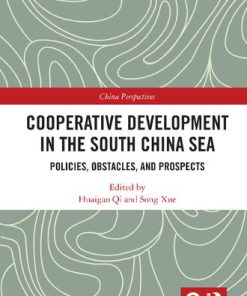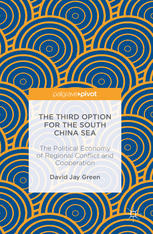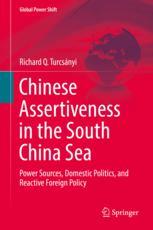US China Competition and the South China Sea Disputes 1st Edition by Huiyun Feng, Kai He 1351214285 9781351214285
$50.00 Original price was: $50.00.$25.00Current price is: $25.00.
US China Competition and the South China Sea Disputes 1st Edition by Huiyun Feng, Kai He – Ebook PDF Instant Download/DeliveryISBN: 1351214285, 9781351214285
Full download US China Competition and the South China Sea Disputes 1st Edition after payment.
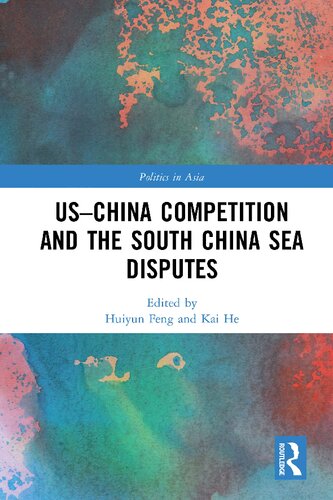
Product details:
ISBN-10 : 1351214285
ISBN-13 : 9781351214285
Author: Huiyun Feng, Kai He
Traditionally, the South China Sea (SCS) issue was not on the negotiation table between the United States and China. However, the tensions between the United States and China over the SCS have gradually simmered up to a strategic level. Why and how did the SCS become a flashpoint between the United States and China? Will the United States and China really go to war over the SCS? Why did China adopt an “assertive” policy towards the South China Sea in the 2000s? What will regional actors do in the face of this “new normal” of competition between China and the United States? Will multilateral institutions in the Asia Pacific alleviate the potential conflicts over the SCS disputes? How will US-Chinese competition in the SCS shape the dynamics of Asian security? This edited book addresses these questions systematically and theoretically, with contributions from leading scholars in the field of US-China relations and Asian security from the United States, Australia, the United Kingdom, and Singapore. It elevates the analysis of the SCS disputes from maritime and legal issues to the strategic level between the United States and China.
US China Competition and the South China Sea Disputes 1st Table of contents:
1. Battlefield or playground?: The rising tensions between the US and China in the South China Sea
The rising tensions in the SCS: whom to blame?
Structure of the book
Conclusion
Notes
References
2. The bargaining dilemma between the United States and China in the South China Sea
The bargaining dilemma in the SCS
Costly signaling strategies in the SCS
The unsolved commitment problem
The locking-in strategy?
Conclusion – any deal at all?
Notes
References
3. The geography of conflict: South China Sea and US–China Rivalry
Theoretical approaches
US–China geopolitical rivalry
Why the South China Sea matters
21st-century maritime rivalries and the South China Sea
China’s great leap outward
China’s strategy toward the South China Sea
US strategy in the South China Sea
Conclusion
Notes
References
4. Chinese thinking on the South China Sea and the future of regional security
The pragmatists
The hardliners
The moderates
Conclusion
Notes
References
5. India’s responses to US–China rivalry in the South China Sea
Looking and acting East
India and the South China Sea
Managing the Sino-Indian security dilemma
Conclusion: confidence, capabilities, and credible commitments
Acknowledgments
Notes
References
6. Japan and the South China Sea disputes: Emerging power politics and “fake liberalism”
Japan’s typically realist interests in the SCS disputes
Japan as a consistent upholder of the rule of international law in SCS?
Japan’s selective multilateralism
Japan’s bilateral dealings and ebbing liberalism
Japan’s “soft” and “hard” balancing in the SCS
Conclusion: Japan’s traditional realism camouflaged as liberalism
Notes
References
7. The South China Sea as symptom of Asia’s dynamic security order
Asia’s long peace
The return of contestation
Sources of change
A symptom of contested Asia
Conclusion: contested Asia
Notes
References
8. When giants vie: China–US competition, institutional balancing, and East Asian multilateralism
Institutional balancing within the EAMA
Associational balancing in the EAMA
Balancing after the rebalance: from associational to adversarial?
Conclusion: whither ASEAN and EAMA?
Notes
References
9. East Asia’s institutional inadequacies and great power rivalry in the South China Sea
The evolution of East Asia’s institutional architecture
East Asia’s institutions in practice – and theory
Conclusion
References
10. Security regionalism: a new form of strategic competition or cooperation between the United States and China in the South China Sea?
Proposals for security regionalism
China’s regional approach to the SCS and its discontents
The US alliance approach to the SCS and its discontents
Competition between the United States and China in regional organizations
Questions of compatibility and conditionality
Conclusion
Notes
References
11. Looking to the future: Hypotheses on China’s maritime disputes and US–China relations
Hypotheses on dispute persistence, escalation and resolution
People also search for US China Competition and the South China Sea Disputes 1st:
how much of the south china sea does china claim
us china strategic competition in south and east china sea
us china conflict south china sea
us-china competition and the south china sea disputes
us china competition in south china sea
Tags: US China Competition, the South China, Disputes, Huiyun Feng, Kai He
You may also like…
Politics & Philosophy - Government & Politics
Financial Security in China Situation Analysis and System Design 1st Edition Dexu He (Auth.)
Commercial & Financial Law
Competition Law in China: A Law and Economics Perspective Jingyuan Ma
History - Military History
Business & Economics
Politics & Philosophy
Politics & Philosophy - International Relations
Politics & Philosophy
Science (General)
Politics & Philosophy - International Relations




